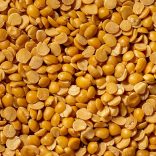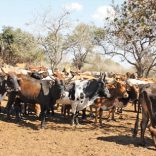Mozambique: Manica province issues four forestry licenses in Q1
Nampula confident of bumper harvest

File photo / The most important cash crop in the province is cashew nuts
The government of Nampula province, in northern Mozambique, remains confident that the province can produce almost 10,000 tonnes of assorted crops in the current agricultural year, despite the damage done by the tropical depression that hit Nampula, particularly the coastal districts, in late January.
The projection is for Nampula to harvest 9.9 million crops, grown on an area greater than two million hectares. This would be an increase of seven per cent on the 2017 harvest.
The most important cash crop in the province is cashew nuts. The agricultural authorities expect a harvest of 64,000 tonnes, compared with 60,000 tonnes last year.
These figures were given on Thursday to the provincial governor, Victor Borges, during a visit to the Provincial Directorate of Agriculture and Food Security.
Speaking to reporters at the end of the visit, Borges said the tropical depression had affected less than one per cent of the total cultivated area “and what was destroyed will be replaced”. The authorities remained optimistic because continued heavy rains are forecast for the rest of the rainy season.
Food security is guaranteed, Borges said, because of the success of the 2016/2017 agricultural campaign in Nampula. “Last year, we produced 9.328 million tonnes on a cultivated area of 1.953 million hectares”, he continued. “Agriculture contributed with 41.9 per cent of total production in the province”.
As for poultry, Borges said that, thanks to new investment, this year the province could produce 20,000 tonnes of chickens.
“Various constraints last year prevented us from reaching our target of 17,000 tonnes, and we only produced 12,000 tonnes”, he added. “But this year we shall guarantee the target”.
However, the Provincial Director of Agriculture, Pedro Dzucule, warned that insect pests such as army worms and elegant grasshoppers are affecting production of maize, tomatoes, cassava and beans.
The pests had affected 1,270 hectares, but Dzucule believed the situation was under control. A serious constraint is the shortage of rural extensionists. “We have 1.3 million producers and they need specialist technical advice, but we only have 436 extensionists in the province”.












Leave a Reply
Be the First to Comment!
You must be logged in to post a comment.
You must be logged in to post a comment.